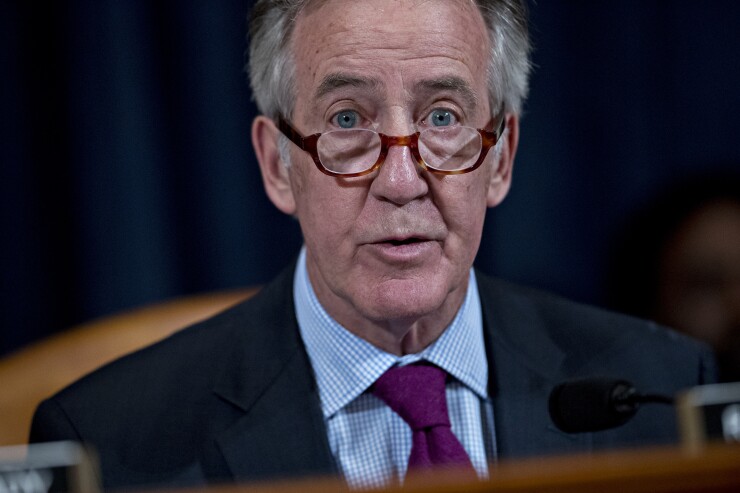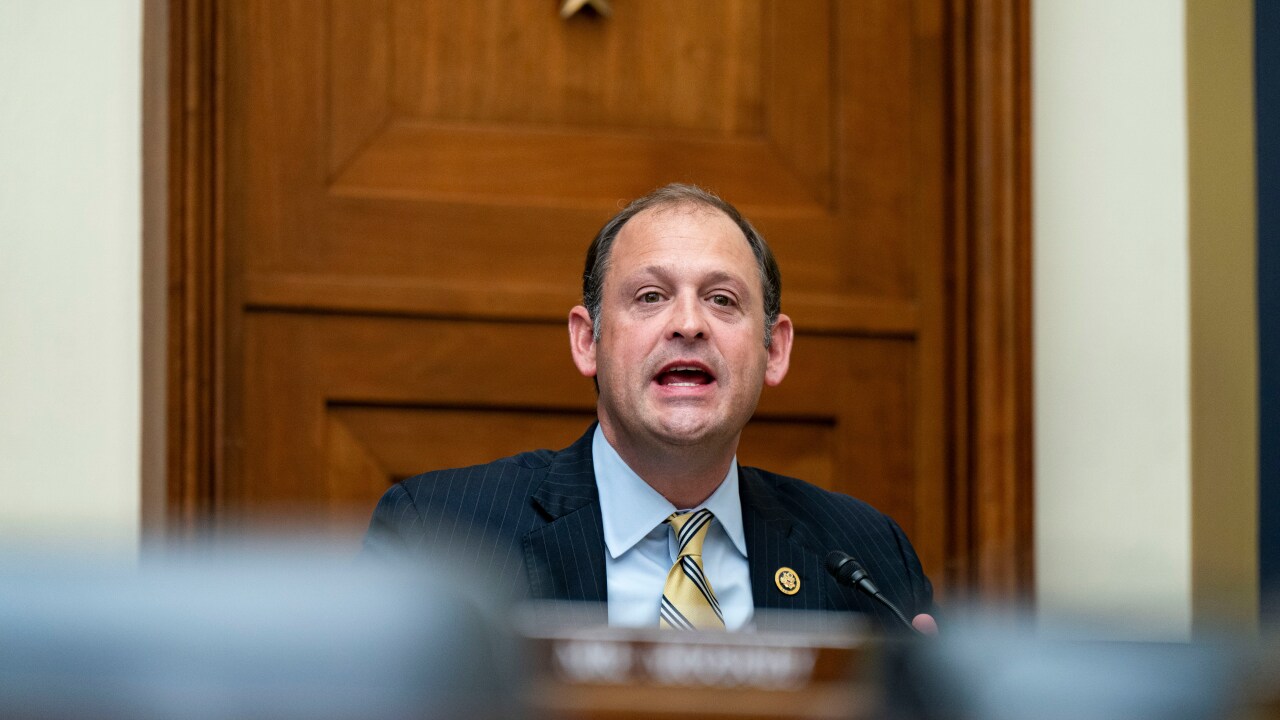Municipal market provisions booted out of the Build Back Better bill last week remain important but “compromises had to be made,” House Ways and Means Committee Chair Richard Neal said Tuesday.
Neal's comments came during remarks at the Securities Industry and Financial Markets Association's annual meeting.
“I tried my best to guard these provisions in reconciliation but compromises had to be made and that's just part of the process,” Neal said during a conversation with SIFMA president and CEO Ken Bentsen. “The constraints are going to make it very hard but we’re going to stay with it," Neal said. "I’m going to keep fighting hard."

Neal was referring to a direct-pay bond program and the restoration of tax-exempt advance refunding, both top priorities of state and local governments that were dropped last week from the reconciliation bill amid Democratic negotiations to downsize the package.
The House Ways and Means Committee included the provisions in its markup of the original $3.5 trillion reconciliation bill in September. Neal said he would keep pushing for the items.
“I’m confident that something is going to pass, that’s why I included these provisions in our mark up,” Neal said.
The new reconciliation bill also includes a corporate minimum tax that some muni advocates worry could dampen demand among institutional bond buyers. The new 15% corporate minimum tax would apply to the adjusted financial statement income for corporations with more than $1 billion in annual income.
A coalition of issuer groups sent Congress a letter Monday urging lawmakers to oppose the inclusion of tax-exempt interest in the new tax.
We “can safely conclude that subjecting an even broader array of state and local government and non-profit bonds to this new tax will raise community borrowing costs,” the letter, sent to Congressional leaders including Neal and Sen. Ron Wyden, chair of the Senate Finance Committee. “Considering the size of the municipal bond market – with over $4 trillion in debt outstanding – the costs will be significant and, again, will be borne by our communities, not by the holders of the bonds,” the letter warned.
The issuers expressed frustration with the lack of muni priorities in Build Back Better as well as the companion bipartisan infrastructure bill: “It is inconceivable that neither of the two infrastructure bills currently being considered by Congress include provisions to improve infrastructure financing,” they wrote.
In a Tuesday report, Municipal Market Analytics downplayed the tax's threat to the market.
“The risk here to the market should be minimal,” MMA said, noting that the tax may affect only about 200 companies and “the number of those that both buy tax-exempt munis and use them to lower effective tax rates below 15% is probably quite small.”
In addition, corporate demand for tax-exempt munis has fallen since the passage of the Tax Cut and Jobs Act of 2017 and the tax-exempt market overall is shrinking overall amid a lack of supply, MMA said.
The “extremely robust current demand component is unlikely to notice the departure of a few more firms,” MMA said.





